Search IMG Library
YOUR SPECIALISM- See all
- Gastroenterology
- Microbiology
- Urology
- Rheumatology
- Stroke Medicine
- Ophthalmology
- Oncology
- Neurology
- Histopathology
- Haematology
- ENT Surgery
- Acute Medicine
- Anaesthetics
- Respiratory
- Dermatology
- Geriatrics
- Radiology
- Surgery
- Paediatrics
- Psychiatry
- Emergency Medicine
- Critical Care & ICU
- General Medicine
27 blogs found
- RELOCATION & UK LIFE >
- Relocation Support
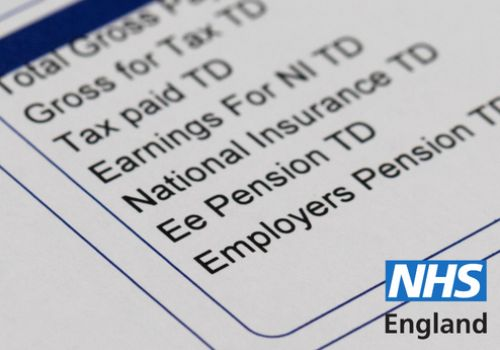
NHS Consultant Salary: Take-Home Pay in England (2025 Update)
Are you an international doctor planning to work as a consultant in the NHS? One of the most important things to understand before relocating to the UK is what your NHS consultant salary will look like after tax — your actual monthly take-home pay.
To support your planning, we’ve created a clear breakdown of take-home pay examples for consultant doctors working in NHS England in 2025. Whether you're just starting your journey or finalising your move, this guide will help you understand your net income, manage expectations, and prepare for life and work in the UK.
How Much Will I Take Home?
In the UK, your take-home pay is the amount deposited into your bank account after all mandatory deductions are subtracted from your annual salary. These deductions typically include Income Tax, National Insurance contributions, and NHS pension payments.
It's important to understand that our calculations are intended as a general guide. We've based our estimates on the gross salary at each pay threshold, assuming no additional income streams. Your actual take-home pay may differ due to various factors, such as additional responsibilities, extra hours worked, supplementary income, your final tax bracket, pension decisions, and any tax-deductible expenses you may claim.
By offering these insights, we aim to help you better navigate your financial planning as you embark on a rewarding career in the NHS and build a new life in the UK.
Take-Home Pay Expectations in England
This is the new 23/24 salary and take-home pay structure following the agreed recent deal.
The pay elements of the new agreement will be applied in the coming months and backdated to 1 March 2024.
Threshold
Annual gross salary*
Estimated annual take-home pay**
Estimated monthly take-home pay**
1
£105,504
£70,649
£5,887
2
£111,714
£73,009
£6,084
3
£114,894
£74,217
£6,185
4
£126,018
£78,576
£6,548
5
£139,882
£85,924
£7,160
*Before tax and pension
**Based on standard salary and not inclusive of additional payments for extra hours worked or pension deductions
For a comprehensive overview of pay and salary conditions across all grades in the UK, explore our blogs series on NHS career structure and pay. Visit our IMG Resources library to find detailed information tailored to international doctors.

Supporting IMG's and their Families
Yay! You’re relocating to the UK.. but what about your family?
We know for overseas doctors moving to the UK to begin their new career in the NHS one of the most important considerations is the well-being of your family. While the medical registration process, securing the right job, and salary expectations are crucial, the quality of life for your partner, children, and other family members are also key factors in making your decision as informed as possible. This is where IMG Connect is more than happy to help – with a highly experienced relocation specialist at your and your family’s disposal.
The UK is one of the most popular destinations for IMGs, offering a universally accessible, world-class healthcare system, competitive salaries, and a diverse cultural experience. However, to make the transition as smooth as possible, understanding what life will be like for your family in the UK is essential. In this blog, we will explore the different aspects of family life in the UK, focusing on schooling options, settling in with your family, and tips for balancing work and personal life as an IMG.
Schooling for IMG Children in the UK
One of the first questions many IMGs have when moving to the UK with children is about the education system. The UK offers a wide variety of schooling options, from state schools to private institutions, and understanding the differences between these options is crucial in choosing the right one for your child.
State schools (free public schools) - State schools in the UK are government-funded and do not charge tuition fees. The majority of children attend state schools, which will follow the national curriculum. Education is compulsory for children aged 5 to 18, but it is typically divided into Primary (ages 5-11) and Secondary (ages 11-16) stages.
There may be some important considerations to make when choosing the best placement for your child. We have listed them below:
State schools are free, and the quality of education is generally high across the country.
Many state schools have strong academic records and offer a range of extracurricular activities.
Depending on where you live, there may be limited school choices, and the availability of spaces in popular schools can sometimes be an issue. Some state schools, particularly in high-demand areas, have waiting lists.
Private schools (independently funded schools) - Private schools in the UK charge tuition fees and are often seen as a way to provide your children with a more personalised education. These schools offer a wider range of extracurricular activities and smaller class sizes compared to state schools. Private schools often have higher academic expectations, and many have a global reputation.
Private schools tend to offer smaller classes, a wider range of extracurricular options, and a more tailored approach to education. They often provide international student programs and have experience working with children from diverse backgrounds.
Tuition fees for private schools can range upwards from £10,000 per year, depending on the institution and the location.
International schools - International schools offer education based on international curricula such as the International Baccalaureate (IB) or the American curriculum. These schools are particularly popular among expatriate families or those looking for a globally recognised qualification.
International schools can help smooth the transition for children, especially if they are familiar with a particular international curriculum. They often have a diverse student body and offer a range of cultural activities that can help your child adjust to life in the UK.
International schools can be expensive and may not be as widely available in smaller cities or rural areas. The focus on international curricula may also limit future options for university admissions in the UK or other countries.
When selecting a school, there are several factors to consider:
Location. Consider proximity to your home and workplace.
Ofsted Ratings. The Office for Standards in Education (Ofsted) rates schools in the UK, and their inspections can give you an idea of the quality of education and facilities offered. Please see here for a look at their website with every published school rating available to see.
School Culture and Values. Make sure the school’s ethos aligns with your values, especially if your family has specific needs or interests (e.g., religion, extracurriculars).
For a more comprehensive guide to understanding UK schooling and applications process, please read this blog from our website.
Relocating, housing and settling in with your family
Once you’ve decided on the best educational options for your children, the next challenge is settling in. The UK offers a wide range of housing options for families, including city apartments, suburban homes, country cottages and private estates.
The two main housing options in the UK for people in full-time work are:
Renting a home. Renting is the most common option for newcomers to the UK, especially for those moving with families. Rental prices can vary greatly depending on the location, with areas in and around London being significantly more expensive than those in rural areas or northern England. Most rental agreements are for 6 or 12 months, and you will need to provide a deposit (usually around 1-2 months’ rent).
Buying a home. If you plan to stay long-term, you may consider buying a property. The process of buying a home in the UK can be more complex for international buyers, so it’s advisable to seek legal and financial advice. Additionally, mortgage rates can vary based on your status (e.g., whether you are a permanent resident or on a work visa).
We know this process can be daunting, but you’re never alone! As previously mentioned, our specialist relocation support will be there on-hand to walk you through these steps of finding the best accommodation to suit you and your family’s needs. Please see here for an in-depth review on the Housing and Rental markets in the UK. Please see here for an in-depth, up-to-date review on the state of the UK housing and rental markets.
Cost of living in the UK; England, Scotland & Wales
The cost of living in the UK can vary widely, depending on where you live. London and the south-east of England are among the most expensive areas, while parts of Northern England, Scotland and Wales offer more affordable options. Key expenses to consider include:
Rent/mortgage
Utilities (gas, electricity, water)
Groceries and transportation
Healthcare (if you require private services)
Practicality is the goal! So for those who are moving with their families from countries with lower living costs, it's essential to plan your finances accordingly and adjust expectations for lifestyle. See here to read more about the cost of living across the UK’s regions, please note at the top of the page where you can select by cities.
Healthcare and family life in the UK; NHS or Private?
As a doctor working in the UK, you and your family will have access to the NHS, which provides free healthcare at the point of use. However, there are certain exceptions (e.g., dental care or prescriptions). As an IMG, you and your family can benefit from the NHS, which is one of the most well-regarded healthcare systems in the world.
Private healthcare is a personal choice. If you prefer private healthcare, the UK offers a robust private healthcare system with options for more immediate access to specialists or procedures. This can also often be accessed through private healthcare insurance plans via select employers. It is important to note that having access to private healthcare does not deny you or your family access to treatment from the NHS.
This link will show you a detailed insight into the comparison of services offered by the NHS and Private healthcare. Understanding the differences will enable you to make informed decisions about what services you need and in what scenario would be appropriate.
Life in the UK - Balancing work and family
As we know, having a happy and healthy family is vital. Balancing your demanding career as a doctor in the NHS with family life is crucial, especially in the context of working in the NHS. The UK offers:
Generous annual leave (typically 5-6 weeks)
Maternity and paternity leave (full pay up to 8 weeks). Read more here to see breakdown and eligibility of length of leave and pay.
Flexible working arrangements for doctors in various specialties
The work culture in the UK varies by hospital or clinic, but in general, the NHS offers good support for families, with a strong emphasis on work-life balance. Importantly, the social safety net for families—such as free healthcare and various child benefits—can make the transition much easier, knowing you and your family are in safe hands.
Social life and cultural integration
Ensuring your family begin their new journey and life in the UK with as much confidence and secuirty as possible is key to a smooth transitional period. We understand the trials and tribulations of starting afresh in a new country and that this may leave feelings of overwhelment and fear - this is why we go above and beyond to make sure your family's needs are also met. With a plethora of success stories from relocating numerous doctors and their families since 2020, we know that creating a new life in the UK, albeit sometimes scary, has been immensely rewarding for all involved. You can read about some of these heart-warming sucess stories here on our website.
On a whole, the UK is a multicultural society, and IMGs often find it easier to integrate because of the diverse communities, cultural events, and support networks available. Large cities like London, Manchester, and Birmingham offer international communities where you can find cultural and religious support, while smaller towns provide a more relaxed lifestyle. In terms of religious communities, the UK has numerous places of worship and religious gatherings, making it easy for IMG families to continue practicing their faith.
In a nutshell... As an overseas doctor who has secured their dream job in the NHS, making the move to the UK with your loved ones is big deal and we are here to make your journey as smooth as possible!
We know that moving to the UK as an IMG brings great opportunities, both professionally and personally. And while the process of registering and settling in may seem daunting, the UK offers a high quality of life for families, with excellent schooling options, strong healthcare, and a welcoming, multicultural environment. By carefully considering your family’s needs—whether it’s finding the right school, securing suitable housing, or understanding the healthcare system—you can make the transition as smooth as possible and enjoy everything that life in the UK has to offer. Ahead of making the move, please feel free to take a moment to read through some of our blogs on our website to gain an idea of what it’s like to integrate into UK society and finding your home away from home so you can surround yourself with some familiarity as well as adjusting to life in the UK.
Once you register with IMG Connect you’ll be contacted by our recruitment team, and as a standard part of the services we offer, we will initiate the process of relocation support for you and your family. We will help every step of the way, from booking flights to accommodation viewings to school interviews and more!
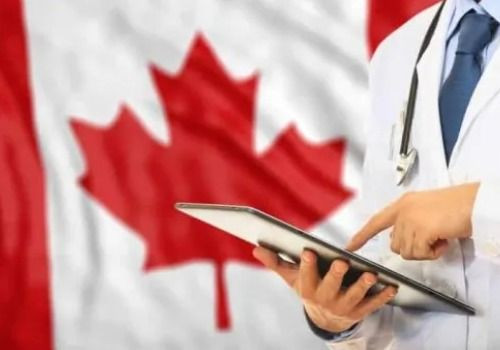
Working as a doctor in Alberta, CA – what IMG’s need to know
Are you an overseas doctor looking for an opportunity to advance your career?
Alberta, Canada might just be your answer! As of recently, Canada is focusing on attracting IMGs, in particular General Practitioners (GPs), consultants and medical specialists, to address staffing shortages and enhance diversity in the profession. Namely, doctors with CCT or CCST qualifications from the UK or Ireland are high in demand. Does this sound like you? With a growing need for healthcare professionals, job opportunities in Alberta come with competitive salaries and excellent potential for career expansion.
With its awe-inspiring scenery and a lifestyle that balances work and play, this province is offering stable and secure jobs for international doctors to join its dynamic healthcare community. This can be where you discover your dream role, but also a take the chance to be part of something bigger—helping to shape the future of healthcare in the province, while enjoying everything Alberta has to offer. And what better place to start your journey than here with us!
In this blog, we’ve put together a clear-cut guide to healthcare in Alberta for overseas doctors. We’ll break down the how’s, the what’s and the who’s; how the healthcare system is structured, who has eligible qualifications and what the licensing processes for UK and Irish-trained doctors are. With this information you can explore potential workplaces and gain an idea of what you can expect in terms of salary. So let’s get you well armed with the most relevant information for you to make the move with confidence.
Here is an overview of Alberta's Healthcare System to help answer any Q’s
Did you know that Alberta’s healthcare system is publicly funded, offering universal coverage to all residents through the Alberta Health Care Insurance Plan (AHCIP)? This means that, regardless of a patient's financial situation, most healthcare services are available at no direct cost at the point of care. Please see here if you’d like to know more about what services are covered, and to what extent, by the AHCIP.
In Alberta, care is provided through a combination of private practitioners, community health centres, hospitals, and long-term care facilities. For GPs, this creates a unique opportunity to foster deeper, more personal connections with patients, as the majority will be covered by AHCIP, allowing for more focused and consistent care.
The system is managed by Alberta Health, which oversees funding, policies, and strategic planning. While AHCIP covers a wide range of services, some, like dental care and prescription medications, might not be fully included, but can typically be supplemented through individual health insurance plans.
How to ensure you are licenced to practice in Alberta, CA.
As an IMG, moving from one healthcare system to another can be a rewarding and sometimes daunting journey, and we’re here to help you navigate the process. First things first you’ll need to ensure you meet the qualifications to practice medicine in the province.
The College of Physicians and Surgeons of Alberta (CPSA) is the regulatory body that ensures all physicians meet the necessary standards.
We’ve highlighted 2 crucial steps to follow to ensure you’re fully prepared:
Assess Your Qualifications. Your first step is to have your medical qualifications recognised in Canada. This involves an assessment by the Medical Council of Canada (MCC), which includes the Medical Council of Canada Evaluating Examination (MCCEE) and a review of your medical school credentials. If your school isn’t on the list of accredited institutions, you may need to complete additional exams, such as the MCCQE Part 1. For a detailed look at these requirements, check out our resource page here.
Applying for Registration with the CPSA. After we’ve helped you through any of the necessary exams, it’s time to apply for registration with the CPSA. There are a few pathways for IMGs:
- Independent Practice: If you meet all the requirements, you can apply for an unrestricted medical license to practice independently.
- Supervised Practice: If you have limited Canadian experience or haven’t completed your residency here, you might need to go through a period of supervised practice, typically lasting one to two years.
- Specialist Registration: If you’re a trained specialist, you’ll need to pass additional exams related to your specialty to obtain a specialist license. We can provide more information on these pathways or write a mini blog explaining them in detail.
Finding Employment Opportunities in Alberta, CA.
Once registered with the CPSA, you can start the exciting part—finding the right job for you! This is where our specialised recruitment consultants will assist you in finding a perfect match. Here are some common practice settings in Alberta:
- Hospitals: From large urban hospitals to smaller rural ones, there are diverse opportunities depending on your specialty.
- Family Medicine: As a family doctor, you’ll often be the first point of contact for patients, especially in rural areas. This is also enabled by many family practices being publicly funded.
- Specialist Care: Alberta has various needs for specialists, making it a great place for IMGs who have completed their specialist training in countries like the UK and Ireland.
- Community Health Centres: These centres focus on serving underserved populations and often seek skilled doctors to join their multi-disciplinary teams.
A simple registration with IMG Connect will kick start your journey of finding the most suitable placement in the perfect setting, matching your needs and goals. Visit here to take the first steps at securing your dream job.
Work Permits and Immigration in Alberta, CA.
As an IMG looking for doctor jobs in Canada, securing a work permit is essential. Alberta’s immigration system is closely linked to federal policies, with many overseas doctors entering Canada through the Express Entry program or other skilled worker pathways. Check the Canadian Government website here for details on your eligibility for Express Entry. Additionally, you may qualify for specific programs aimed at attracting skilled medical professionals, like the Alberta Immigrant Nominee Program (AINP). You can find out more here.
At IMG Connect, we have a secialsed team dedicated to relocating and all the admin that comes with it. Once you have registered with us, you will be put in touch with our relocation specialist to begin discussions on how to gain eligibility to live and work abroad.
What can you expect from life here?
So, what can you expect as you settle into life in Alberta? You’ll be happy to know that this province is known for its cultural diversity and vibrant communities, home to around 4.4 million people. Alberta offers a high standard of living and a great work-life balance, although, like many places, the cost of living can vary—especially in cities like Calgary and Edmonton. But not to worry; competitive salaries for doctors and a wealth of benefits make practicing here worthwhile. Let’s dive into what you can look forward to!
Salaries. Your earnings in Alberta as a doctor can vary depending on your specialty and role. Top-earning physicians can see annual salaries averaging around $440,000, while the overall average for doctors hovers around $280,000. Factors like your working hours and specialty can influence your income, giving you the potential to earn more based on your commitment and expertise. You can see here for a comprehensive breakdown of how your speciality can effect your salary.
Cost of Living and Housing. While Alberta boasts a high quality of life, it's important to consider the cost of living. Cities like Calgary can be pricey when it comes to housing, but smaller towns and rural areas often offer more affordable options. Planning your budget in advance can help ensure a smooth transition, and if you’re working with IMG Connect, we’ll assist you every step of the way!
Cultural Diversity and Community Support. One of the highlights of Alberta is its rich multicultural environment. The province welcomes individuals from around the globe, creating vibrant communities filled with diverse food, festivals, and support networks. As an IMG, you’ll find a welcoming community of fellow medical professionals, and you’ll have the chance to engage with patients from a variety of backgrounds. If you’re curious about the experiences of other IMGs who have successfully made the transition, check out their inspiring stories on our website. Alberta also has a strong support network for IMGs, with professional organizations and programs designed to help you integrate into the Canadian healthcare system. Mentorship opportunities and resources are available through the CPSA and various medical associations.
Work-Life Balance. Alberta’s healthcare system values work-life balance. Your work hours may vary by specialty, but many physicians enjoy flexible scheduling, particularly in community settings. This flexibility is essential, especially if you’re relocating with family and want to maintain a healthy balance between your professional and personal life.
Challenges and Opportunities for IMGs in Alberta, CA
While Alberta offers an abundance of opportunities, it’s essential to be aware of some challenges you may encounter to help secure the job and life that you want.
Challenges
Credential Recognition. Getting your international qualifications recognised can take time. You might need to pass exams, undergo supervised practice, and carefully navigate the regulatory processes.
Cultural Adaptation. Although Alberta is welcoming, adjusting to a new country, culture, and medical system can be a journey. Familiarising yourself with Canadian medical practices and patient expectations is key.
Opportunities
High Demand for Physicians. Alberta’s growing population means there’s a strong demand for healthcare professionals in both urban and rural settings. Being flexible about where you practice can open doors to numerous opportunities, particularly in underserved areas.
Support for IMGs. Alberta’s healthcare system and professional organizations provide various resources for overseas doctors from the UK & Ireland, including orientation programs, mentorship, and, in some cases, financial assistance. And you’re not alone in this journey IMG Connect is here to support you every step of the way.
In a Nutshell
For those who made it this far, you’ll know Alberta is a fantastic place for UK and Irish-trained doctors looking to build a career in Canada. With its strong healthcare system, diverse patient population, and a range of employment opportunities, you’ll find plenty of ways to contribute to healthcare while enjoying life in one of Canada’s most stunning provinces.
While there are challenges to navigate—like licensing and cultural adaptation—the rewards of working in Alberta’s healthcare system are significant. If you’re an IMG ready to practice in Alberta or anywhere in Canada, IMG Connect is excited to help! Our experienced team is here to guide you through every stage of the recruitment process, from licensing to relocation, ensuring you start your journey with confidence and all the tools you’ll need. All that’s left to do now is register with us today to learn more about how we can support your medical career in Alberta!
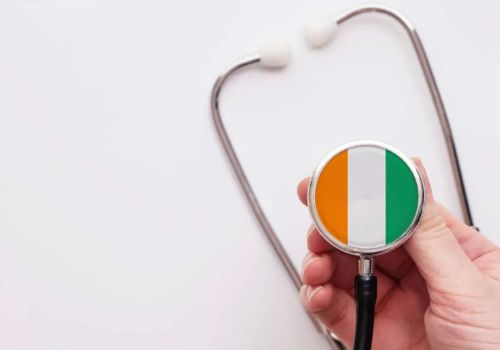
Irish Medical Council (IMC) Registration for overseas doctors
To work as a doctor in Ireland you will need to register with the IMC.
The IMC is a public body that maintains the official register of medical practitioners within Ireland and attaining full registration is a multistep process involving a number of different documents. IMG Connect are here to help guide overseas doctors through the various stages of IMC Registration by considering the following topics:
Why do I need IMC Registration?
How much will it cost me?
What are the requirements for IMC Registration?
Recognised IMC qualifications
English language capabilities
Registration and licensing history
ID Check
What is the process?
First, lets understand the types of IMC registration that are available
There are several types of IMC registration that are available, and so understanding the registration type that fits you is really the first step. How do you work this out? Well the IMC website has this very useful eligibility route finder and if you have run this already, we recommend checking through this before starting your application.
You'll see that there are various different divisions of IMC registration, and the full list reads Trainee Specialist Division, Internship Registration, Specialist Division, General Division, Supervised Division and Visiting EEA Practitioners Division. Whilst it might seem a bit confusing we can simplify this for you and say that most IMGs or overseas doctors we are working with will be applying for either the general or specialists division. And what does that mean in practice? Doctors with specialist registration may practise independently, without supervision and may represent themselves as specialists, and anyone with general registration is permitted to practice under certain specifications or supervision. If you have ever looked at GMC registration, its essentially the same.
Ok, and why do I need IMC registration?
Its quite simple really, it is a legal requirement! Practicing medicine in Ireland without IMC registration is illegal, as it is in most countries, so anyone wishing to work in the Irish healthcare system will need to get cracking and ge their IMC registration together.
So how much will IMC registration cost me?
The cost of IMC registration varies depending on the type of registration you are applying for. When looking at the IMC website you might find it quite confusing, as did we initially, but to give an overview we can say the total cost of a new application and granted registration can vary, from roughly €1000 to €1,300 depending on the two main associated considerations and costs below.
Application Fee - there is a non-refundable fee for submitting your application. This fee can vary, so it’s important to check the IMC website for the most current amount here.
Registration Fee - in addition to the application fee, there is the registration fee. Again, this amount depends on what type of registration it is you're applying for i.e. general or specialist.
Whatever the case we recommend budgeting for these costs in advance to avoid any nastyt surprises at the point you are ready to make an application!
Ok - so what are the requirements for IMC registration?
To be eligible for full IMC registration with a license to practice, you’ll need to fulfill the requirements listed below. They are very similar to other medical registrations, think GMC registration for example, and will follow a similar pattern. Essentially, you'll need to show that you have the qualifications and knowledge to work as a doctor, and that you can communicate to the required minimum levels to practice safely in Ireland. Below we have listed out and explained some of the requirement for a successful application with the IMC.
Recognised Primary Medical Qualification - you must have a medical degree from a recognised institution, essentially one that is on the World Directory of Medical Schools. You can easily check by going on their website and finding your medical school. You'll then need to verify this with the EPIC (the online portal managed by the ECFMG) - and you can find some more information on this via our blogs on our website here.
English Language Capabilities - if English is not your first language, you must demonstrate your proficiency through accepted tests such as International English Language Testing System (IELTS) and Occupational English Test (OET). Meeting the IMC’s language requirements is crucial for effective communication in a clinical setting, and they are slightly different to the GMC's scoring requirements for registration. For OET you need 4 B's, and for the IELTS you need to acheive an overall band score of 7.0 and a minimum score of 6.5 in each module. For both OET and IELTS this score mut have been acheived in the last 2-years.
Evidence of Knowledge & Skills - this essentially is the qualification or licensing exam that you are using to register with the Medical Council. This might be a reocgnised overseas postgraduate qualification, an Irish postgraduate qualification, a European Specialist Qualification, or the IMCs licensing exam known as the PRES. Either way, for the majority of docotrs applying they will need to show evidence of something additional
Evidence of Registration and Licensing History - you’ll need to provide information about your previous medical registrations and licenses. This includes a proof of registration document showing that you are registered to practice in your home country or any other country where you have practiced.
Certificates of Good Standing - a Certificate of Good Standing (CGS) is typically required from the medical regulatory authority in your home country. This document confirms that you have no ongoing investigations or disciplinary actions against you and no application will be accepted without these. You'll need to provide a CGS that is dated within the last 3-months, and from every medical regulatory body with whom you've held a registration with in the last 5-years.
What Is the Process?
The process of registering with the IMC involves several steps as below:
Document Preparation - gather all required documents, including your medical degree, transcripts, proof of English proficiency, and certificates of good standing.
Online Application - complete the online application form on the IMC website. Ensure that all information is accurate and complete to avoid delays.
Application Fee Payment - pay the non-refundable application fee when you submit your application.
Submit Supporting Documents - upload all necessary documents through the IMC online portal. Make sure everything is clear and readable.
Await Assessment - after submission, the IMC will assess your application. This process can take several weeks, so patience is key.
Complete Additional Assessments - if required, complete any knowledge and skill tests as specified by the IMC.
ID Check & Receive Registration - once your application is approved, you will receive your IMC registration number and will be invited to attend an ID check. Once this has completed you can then practice medicine in Ireland!
To summarise
Registering with the Irish Medical is a crucial step for any overseas doctors wishing to practice in Ireland. By understanding the requirements and following the outlined process, you can navigate this journey with confidence but we appreciate the process may become difficult or unclear. At IMG Connect we’re here to support you throughout your registration process so if you have any questions or need assistance, don’t hesitate to reach out. Together, we can help you turn your dream of practicing medicine in Ireland into reality!

Working in Jersey’s Private Healthcare
Are you an NHS or overseas-trained doctor looking to boost your main income? You’re not alone! Many doctors employed in the UK turn to the private sector for extra work at some point, and those considering Jersey as a future employer will be pleased to know it is an excellent place to do just that.
With about 30% of Jersey’s population covered by private healthcare insurance, the demand for private services is on the rise. This makes now the perfect time to consider relocating to Jersey, where you can balance public sector responsibilities with exciting opportunities in a growing private healthcare market. Whether you’re looking to enhance your career or simply increase your earnings, Jersey has a lot to offer.
Throughout this blog we will be looking into:
Health and Community Service’s (HCS) Private Patients Services Strategy
Benefits of Working in Jersey’s Private Sector
Career Growth Opportunities for IMGs in Jersey’s Private Healthcare
How to move from NHS to private
Health and Community Service’s (HCS) Private Patients Services Strategy
Since the pandemic, Jersey’s private patient revenues took a hit, but things are looking up. In 2023, private patients contributed £12.2 million to Health & Community Services (HCS), about 5% of its total budget. Now, with the launch of the Private Patients Services Strategy, HCS aims to double that figure to over £24 million.
This growth presents exciting opportunities for consultants and specialists, allowing for enhanced career and skill development alongside the main bulk of their work in public sector.
Having choices in healthcare provision not only brings comfort but can also benefits the entire system. Supporting the option to go private enhances care delivery for both clinicians and patients in Jersey. It’s an exciting time to be part of this evolving landscape!
Jersey’s Private Patients Services Strategy: A Vision for 2024-2028
Jersey has unveiled its Private Patients Services Strategy for 2024-2028, aiming to elevate private healthcare on the island over the next five years. Here’s a snapshot of the key goals:
Attracting Top Talent: The strategy seeks to draw in highly-skilled consultants and specialists from the UK and EEA region, enriching and diversifying Jersey's healthcare expertise.
Expanding Service Options: By broadening the range of private healthcare services, patients will have more tailored choices to meet their specific needs.
Boosting Revenue for Community Benefit: The goal is to double private patient income to over £24 million by 2028, contributing to the overall healthcare system and benefiting all islanders. Think of the potential for your fledgling private practice!
Supporting Healthcare Professionals: The plan emphasises collaboration with doctors. The HCS private patients’ leadership team will work closely with consultants to develop and grow services, backed by government support through stakeholder engagement, giving you the guidance and security to take this big step!
This strategy promises exciting advancements for both healthcare professionals and the community.
Benefits of Working in Jersey’s Private Sector
Thinking about making the switch from public to private healthcare? Here are some compelling reasons:
Career Advancement: The private sector offers numerous opportunities for leadership roles, business partnerships, and even the chance to establish your own practice. For those looking for the next step in their career, this would be great for the portfolio!
Better Work-Life Balance: Generally, Jersey’s healthcare workers report lower burnout rates compared to those in the NHS. This may mean you have more time available to supplement your public sector work, with your private sector work, and not just at the expense of your personal time and sanity!
Support from HCS: The HCS private patients leadership team collaborates with medical consultants to help them develop and enhance commercial services, ensuring mutual benefits for everyone involved.
Government Backing: If you’re interested in the private medical sector, substantial government support is available, whether you want to open your own practice or become a partner, through the
Improving Public Health: By easing the demand for state care, you can help reduce waiting lists, allowing patients to receive timely care and avoid worsening conditions.
Career Growth Opportunities for IMGs in Jersey’s Private Healthcare
Leadership and Business Roles: IMGs can pursue leadership positions, form partnerships, or launch their own practices in Jersey’s expanding private healthcare market.
Specialisation and Niche Services: The opportunity to specialise in areas like cosmetic surgery or oncology allows IMGs to introduce unique treatments and thrive in a patient-focused environment.
Starting a Private Practice: As previously stated, IMGs receive support from Jersey’s Health & Community Services (HCS) for business planning, marketing, and regulations, ensuring a smooth transition to private practice, as well as financial incentives from the government to help start things up.
Networking and Collaboration: Joining a network of specialists offers opportunities for collaboration and knowledge exchange, enhancing career advancement.
Leading Service Expansion: IMGs can take on leadership roles in developing and expanding innovative healthcare services as the sector grows.
Active Role in the Private Patients Strategy: Contributing to Jersey’s Private Patients Services Strategy allows IMGs to help shape the future of private healthcare.
Enhanced Professional Recognition: Working in Jersey’s high-standard private healthcare system helps IMGs build recognition locally and internationally, creating future opportunities worldwide.
How to move from NHS to private in 10 steps
Understand Jersey’s Healthcare System: Jersey has its own independent healthcare system. Consultants often work in private practices or a hybrid model with Jersey General Hospital, where many patients pay for services directly or through insurance.
Research Private Hospitals and Clinics: Key private providers include Lido Medical Centre and Clinique Pinel. Explore opportunities at Jersey General Hospital, which may offer private consulting roles.
Jersey License to Practice: Ensure you’re licensed to practice in Jersey by registering with the Jersey Care Commission, which regulates healthcare professionals on the island.
Private Practice Setup: If starting your own practice, register it with Jersey's Government and secure medical indemnity insurance. Build relationships with private insurers like Bupa and AXA PPP.
Finding Job Opportunities: Jersey has a demand for specialists in fields like orthopaedics and cardiology. Check job listings at Jersey General Hospital and private clinics.
Building a Patient Base: Success in private practice relies on referrals from local GPs and maintaining a strong professional reputation. Consider marketing yourself through websites and local directories.
Work Flexibility: Many consultants work in both public and private sectors. Decide if you want to focus solely on private care or split your time.
Finances and Earnings: Private consultants can earn significantly more than NHS counterparts, but consider Jersey’s higher cost of living when planning your finances.
Housing and Relocation: Understand local housing rules, as competition for rentals can be high. Your employer might assist with relocation.
Legal and Tax Considerations: Familiarise yourself with Jersey’s tax laws, which differ from the UK. Private earnings must be declared to the Jersey tax authorities.
Wrapping Up!
To transition from an NHS role to Jersey private healthcare as a consultant or specialist, you must:
Familiarise yourself with Jersey's healthcare system and private sector.
Obtain the necessary medical licenses and register with the Jersey Care Commission.
Explore employment or business opportunities at private clinics, Jersey General Hospital, or set up your own practice whole researching all opportunities.
Establish a patient base, including networking with local GPs and insurers.
Understand the financial and legal implications of practicing privately in Jersey.

Jersey, UK - A doctor's salary
Are you a Doctor considering a career move to Jersey? Understanding doctor pay in Jersey is crucial when planning the next step in your career.
Jersey, the largest of the Channel Islands, not only offers a stunning living environment but also provides highly competitive salaries for medical professionals. As our team at IMG Connect partners with Jersey Health and Community Services, placing doctors into their excellent services, we thought we'd put together a short guide to delve into Jersey doctor pay by grade, helping you make an informed decision about your future career.
Foundation Doctors (FY1 & FY2) Pay in Jersey
For newly qualified doctors, starting in Jersey offers an appealing financial incentive. The salary for a Foundation Year 1 (FY1) doctor begins at approximately £32,398 per year—higher than the equivalent in the UK. Moving into Foundation Year 2 (FY2), the pay increases to around £37,303 annually. These figures reflect base salaries, but additional earnings can be accrued through compensation for unsocial hours, night shifts, and weekend work. This makes Jersey an excellent starting point for medical professionals beginning their careers.
Specialty Training (ST1 – ST3) Pay in Jersey
Jersey doctor pay becomes even more attractive as you move into Specialty Training (ST1 to ST3). Salaries for Specialty Trainees in Jersey range between £43,923 and £55,329 per year. The exact salary depends on your level of training and experience. Just like in the UK, these figures can be increased with enhancements for extra hours, night shifts, and weekend duties, making doctor pay in Jersey highly rewarding for those in specialty training.
Associate Specialist Pay in Jersey
For doctors who are looking to step up without taking on a full consultant role, the Associate Specialist position in Jersey offers lucrative opportunities. Jersey doctor pay for Associate Specialists ranges from £83,519 to £126,025 annually. This pay scale is higher than that of the UK, reflecting the island’s higher cost of living and the demand for skilled medical professionals. The role also includes potential earnings through additional responsibilities, further enhancing doctor pay in Jersey.
Consultant Pay in Jersey
Consultant roles in Jersey are particularly well-compensated, with annual salaries ranging from £110,257.50 to £164,372.63. Beyond this base pay, consultants have the opportunity to earn more through additional responsibilities, such as management roles or educational duties. Jersey also offers Clinical Excellence Awards to recognise and reward outstanding performance, further enhancing the potential earnings for consultants on the island.
Tax Benefits of Working in Jersey
These include a base 20% tax rate, generous pension schemes, comprehensive healthcare coverage, and ample opportunities for professional development. Jersey’s healthcare system is known for its supportive environment, which fosters both personal and professional growth, making Jersey doctor pay and lifestyle a compelling combination.
Why Choose Jersey for Your Medical Career?
Choosing Jersey means opting for more than just competitive salaries. Jersey doctor pay is complemented by the island's beautiful landscapes, rich culture, and a tight-knit community. If you’re looking for a career that offers both financial reward and a high quality of life, Jersey could be the perfect destination for your next professional chapter.
Conclusion: Jersey Doctor Pay – Competitive and Rewarding
Doctor pay in Jersey is highly competitive across all levels, from Foundation Doctors to Consultants. With salaries that often surpass those in the UK and a range of additional benefits, Jersey offers a unique opportunity for medical professionals. Whether you are just starting or are an experienced doctor, Jersey doctor pay combined with the island's exceptional living conditions makes it an ideal location for advancing your medical career.
If you want to read more about the top places to visit on the Island of Jersey click here to read this blog!
For more information on Jersey doctor pay and job opportunities, don’t hesitate to get in touch using the buttons above (and below) to discuss doctor job options in Jersey. To view the full Government of Jersey - Doctors and Medical Consultants click here!

Working in Jersey's Healthcare
Considering a career move to Jersey’s healthcare system? Many UK-trained medical consultants have likely been approached by recruitment agencies regarding job opportunities in Jersey. Whether you’re an IMG doctor, a European-qualified specialist, or an established NHS consultant with a CCT, Jersey might be a career destination that you don’t know much about beyond a few myths and legends. In this article, we’ll explore the key aspects of working as a doctor in Jersey’s healthcare system. Whether you’re an IMG or a UK trainee, we hope to provide you with a clearer perspective on whether Jersey could be an exciting next step in your career.
A Small Island with Big Opportunities!
Whilst not technically being part of the UK, Jersey, the farthest of the Channel Islands from mainland Britain, offers a unique blend of professional opportunities and an enviable lifestyle. It's size may not be impressive, but its healthcare system certainly is. Here’s a snapshot of what you need to know about working in Jersey’s healthcare system, with some notable comparisons to the NHS.
Like most things in Jersey, its healthcare system is robust, well-financed, and highly respected. Whilst still being part of the UK, Jersey operates independently of the NHS, meaning it has its own health service structure, policies, and funding.
Jersey also has a thriving private healthcare sector, with an estimated 30% of the population who have private healthcare insurance, providing another avenue for professionals seeking diverse career opportunities. Working in private healthcare in Jersey allows for a more individualised patient care experience, often with access to state-of-the-art facilities and even more flexibility in clinical practices. Whether in public or private settings, the healthcare landscape here is designed to cater to both professionals and patients.
If you are relocating from the NHS, you may find the transition smooth. Luckily, many of the clinical standards, training, and governance procedures mirror the NHS, so your qualifications will be seamlessly transferable.
Some Key Differences from the NHS:
Smaller Scale, Personal Touch: Jersey’s healthcare system is compact, bringing with it certain advantages. A petit population means fewer patients to manage, so there’s often more time to dedicate to each case, fostering a closer doctor-patient relationship. You’ll be part of a smaller team, which can offer a more personalised, collaborative working environment in Jersey have been expanding compared to larger NHS trusts.
Focus on Mental Health: Mental health services, with a strong focus on community-based care. As a mental health professional, you'll find a commitment to delivering integrated care in both hospital and community settings, providing you with diverse experiences and opportunities for specialisation in your preferred area of practice.
Work-Life Balance: The island’s healthcare system is known for offering a better work-life balance. While NHS roles can often involve long hours and on-call obligations, Jersey’s healthcare professionals frequently report lower levels of burnout. The island’s slower pace of life, along with the stunning beaches and outdoor lifestyle, means you can recharge more effectively during your time off.
Pay and Benefits: Salaries for healthcare professionals in Jersey are competitive and often higher than those offered in mainland UK, as well as other parts of Europe. You can find the Jersey pay scales in full here, whilst we have simplified the pay scales, for your ease, here.
Competitive Tax Rates: And you may’ve heard, but there’s also no VAT in Jersey, which means you can see your earnings go much further. While the cost of living, particularly housing, can be higher, this is often offset by the attractive salary packages and tax rates (a maximum of 20%).
Pensions: When comparing to the NHS’s robust pension schemes, you will see the key differences within the tax environment and contribution rates. This makes Jersey particularly attractive for high-earning specialists or consultants due to the potential to save more into their pensions without hitting the same tax barriers that UK practitioner must adhere to.
Shorter Waiting Lists = More Flexibility: As much as we cherish the NHS, there’s no secret to the pressures it faces day-to-day. Jersey’s healthcare system is not as stretched, where you’ll see waiting times for patients are significantly shorter, and as a clinician you have more flexibility to make important decisions without the same level of resource constraints.
Licensing and Registration
One of the most important steps when making the move is ensuring your qualifications are recognised in Jersey. Most UK-trained doctors and mental health professionals will find this straightforward, but you’ll need to register with the General Medical Council (GMC) or, as a mental health practitioner, the Health and Care Professions Council (HCPC) and obtain a licence to practice in Jersey. The process is akin to the NHS, and guidance is readily available to help you through it on the GMC website.
If you are coming from abroad, the process is similar to what is required for practicing in the UK. You'll need to comply with the following:
Obtain a GMC registration: If you're not already registered, you'll need to meet the GMC's requirements, which may involve providing proof of qualifications, passing relevant exams (such as the PLAB), and demonstrating your English language competence. This process includes psychiatrists, where they will also be required to
Obtain a licence to practice: In addition to being registered, you'll need an active licence to practice. Jersey operates under the same framework, so an active GMC licence is essential.
Visa and work permits: If you're moving from outside the UK or the European Economic Area (EEA), you’ll also need to ensure you have the correct visa and work permits to live and work in Jersey. Employers often assist with this process.
Specialist Registration: As a specialist doctor practicing in Jersey, you will also need to be listed on the GMC's Specialist Register. This requires demonstrating your specialty training, typically through certification of completion of training (CCT) in psychiatry or equivalent qualifications from your home country.
For mental health and care professionals, if you're a psychologist or physiotherapist for example, you would need to register with the relevant UK bodies such as the HCPC, depending on your profession.
Professional Development
The state of Jersey is committed to professional development and getting the most out of its residents, whereby they provide access to a variety of training programmes to enhance your career and opening doors to progression. As previously mentioned, the island has strong ties with UK institutions, and you'll often find that continued professional development follows similar frameworks to the NHS, meaning you won't miss out on growth opportunities!
Perks of the Job
Relocating to Jersey means more than just a new job—it’s a new lifestyle. The island is known for its uniquely stunning landscapes, mild climate and strong sense of community. With its breathtaking beaches, outdoor sports amenities, and short commutes, you’ll enjoy a much calmer, more relaxed pace of life. And with quick travel links to the UK, France and the rest of Europe, you’ll never feel too far from home or adventure. [CS2]
Housing and Relocation Support
It’s worth noting that Jersey has a controlled housing market, and your residential status will determine where you can live. However, many healthcare roles come with relocation support, including assistance with accommodation. Whether you're moving from mainland Britain or further afield, Jersey’s healthcare employers are well known for their generosity with assisted relocation packages, aiming to ensure as smooth
as possible transition.
So, Why Jersey?
Career advancement: Jersey’s healthcare system offers varied and rewarding career opportunities, with less bureaucracy and more flexibility than the NHS.
Competitive salary: Higher wages, lower tax rates, and no VAT make your money go further.
Improved work-life balance: Enjoy shorter commutes, less stress, and a lifestyle focused on health and wellbeing, leaving you full of (Jersey) beans!
Seamless transition: Familiar standards and processes make it easy for NHS and EEA professionals to adapt.
Relocating to Jersey offers the chance to make a real difference. It gives you the exclusive opportunity to progress in a uniquely vibrant healthcare system while enjoying a high quality of life. If you're ready for your next career move, Jersey’s healthcare community is waiting to welcome you!
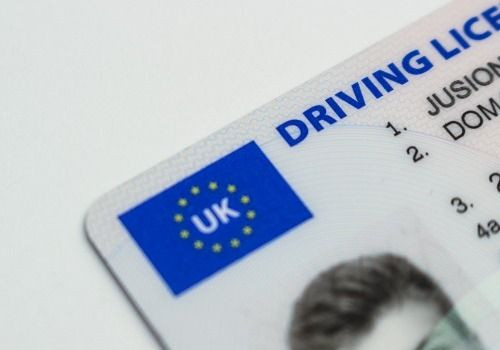
Can I drive in the UK on a foreign license?
I'm an overseas doctor planning to relocate to the UK. Can I drive immediately?
Good question!
This is a common query raised by IMGs planning their relocation to the UK. In this article we’ll help you understand the process of driving in the UK with a foreign license and, if necessary, to arrange your UK driver’s licence by addressing the following questions:
Is my driver’s licence valid?
What is the difference for EU and non-EU driver’s licence holders?
Exchanging your licence
Is my driver’s licence valid?
Regardless of where you're relocating from, if you hold a foreign driver’s licence, you can drive in the UK immediately. However, the duration and conditions under which you can continue driving depend on whether your licence is from an EU (or a designated country) or a non-EU country.
You can check here to confirm your licence status.
What is the difference for EU and non-EU driver’s licence holders?
For an EU licence holder:
If you hold an EU or European Economic Area (EEA) driver’s licence, you can drive in the UK until the age of 70 or for up to 3 years after becoming a UK resident, whichever is longer. After this period, you must exchange your licence for a UK one, rather than retake the test.
For non-EU licence holders:
If you hold a foreign driver’s licence and are now a resident in the UK, you can drive for a period of 12-months with your current licence. To continue driving beyond this period, you must obtain a UK driving licence by passing both the theory and practical driving tests within the 12 months.
Exchanging your licence:
You can exchange your foreign driver’s licence for a GB licence if it is from:
EU/EEA countries (no time limit for exchange)
Northern Ireland (no time limit for exchange)
Jersey, Guernsey or Isle of Man (must be exchanged before 12 months)
A designated country* (must be exchanged before 12 months)
* Andorra, Australia, Barbados, British Virgin Islands, Canada, Falkland Islands, Faroe Islands, Gibraltar, Hong Kong, Japan, Monaco, New Zealand, Republic of Korea, Singapore, South Africa, Switzerland and Zimbabwe
You can check whether you can exchange your licence here.
How do I exchange my licence?
To exchange your licence, you will need to get a D1 form which you can obtain from any Post Office that handles DVLA transactions or you can apply online through the DVLA website.
When filling out the form you'll need to provide:
Your current driver’s licence
Proof of your identity (e.g. passport or residency card)
A passport-sized photo
A fee of £43, payable by cheque or postal order
The process usually takes about 3 weeks, and your new UK licence will be sent to you via post.
IMG Jobs
Search and find live NHS doctor jobs in the UK
IMG Resources
In our IMG Resources library you can read more useful articles on finding an NHS trust doctor job, pay scales & doctor’s salary in the UK, relocation and much more!
Get in Touch
Get in touch using the buttons above (and below) to discuss doctor job opportunities in the NHS, including discussions regarding a typical doctor salary in the UK and the most suitable hospital locations for you.
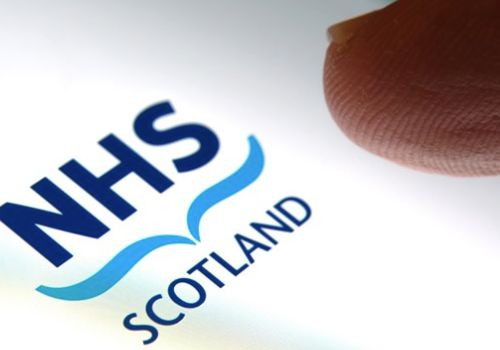
NHS Scotland - A consultant's take-home pay
NHS Consultant Salary: Monthly Take-Home Pay for International Doctors in Scotland
For international medical graduates (IMGs) interested in NHS jobs in Scotland, understanding what an NHS consultant salary translates to in monthly take-home pay is essential for financial planning. To assist overseas doctors in preparing for life in the UK, we’ve provided examples to give you a clearer idea of your potential monthly earnings.
How Much Will I Take Home?
In the UK, your take-home pay is the amount you receive in your bank account after all mandatory deductions from your annual salary. These deductions include:
Income Tax
National Insurance contributions
NHS pension payments
Our figures serve as a general guideline. They are based on the gross salary for each pay scale and assume no additional sources of income. However, your actual take-home pay can vary based on:
Additional responsibilities or extra hours worked
Other income sources
Your final tax bracket
Decisions regarding NHS pension contributions
Claims for tax-deductible expenses
Take-Home Pay Expectations in Scotland
For NHS consultants in Scotland, the monthly take-home pay will depend on these factors. Use our examples as a starting point, but remember that actual earnings can differ. To get the most accurate information for your specific situation, consult with an IMG specialist or financial advisor. Understanding how NHS consultant salaries translate into monthly take-home pay will help you effectively plan your finances and ensure a smooth transition to your new role in Scotland.
Threshold
Annual gross salary*
Estimated annual take-home pay**
Estimated monthly take-home pay**
1
£107,144
£67,394
£5,616
2
£109,407
£68,084
£5,673
3
£112,662
£69,077
£5,756
4
£115,921
£70,071
£5,839
5
£119,170
£71,061
£5,921
6
£126,905
£73,761
£6,146
7
£134,640
£77,628
£6,469
8
£142,369
£81,493
£6,791
*before tax and pension
**based on standard salary and not inclusive of additional payments for extra hours worked or pension deductions
To explore detailed information on NHS pay scales and salary conditions across all grades in the UK, check out our comprehensive series of blogs on career structure and NHS doctor pay in our IMG Resources library. These resources are designed to help international doctors understand their earning potential at various stages of their careers in the NHS.

NHS Wales - A consultant's take-home pay
Are you an international doctor considering a move to the UK and curious about NHS pay in Wales? Understanding what an NHS consultant salary means in terms of monthly take-home pay is crucial for your financial planning.
To help overseas doctors like you prepare for life in the UK, we've put together practical examples to illustrate what you can realistically expect to keep each month in Wales. These insights aim to make your transition smoother and more informed.
How Much Will I Take Home?
In the UK, your take-home pay is the amount that reaches your bank account after mandatory deductions, such as Income Tax, National Insurance, and NHS pension contributions, have been made from your annual salary.
Please note that these figures are intended as a guideline. We've based them on gross salary at each pay threshold, assuming no other sources of income. Your actual take-home pay may vary depending on factors like additional responsibilities, extra hours worked, other income sources, your tax bracket, pension choices, and any tax-deductible expenses you claim.
By providing these examples, we aim to support your journey towards a fulfilling career in the NHS and a well-prepared life in Wales.
Take-Home Pay Expectations in Wales
Threshold
Annual gross salary*
Estimated annual take-home pay**
Estimated monthly take-home pay**
1
£106,000
£70,841
£5,903
2
£111,300
£72,855
£6,071
3
£116,600
£74,869
£6,239
4
£121,900
£76,883
£6,406
5
£130,380
£80,887
£6,740
6
£137,800
£84,820
£7,068
7
£146,280
£89,314
£7,442
8
£154,760
£93,809
£7,817
*based on standard salary and not inclusive of additional payments for extra hours worked or pension deductions
To explore doctor pay and salary conditions across all grades in the UK, including NHS pay in Wales, check out our series of blogs on career structure and NHS salaries in our IMG Resources library.

Top 5 Places to Visit on the Island of Jersey
Are you an international medical graduate considering a move to the Island of Jersey?
Nestled between the English Channel and France, Jersey offers a unique blend of British and French cultures, breathtaking landscapes, and a host of activities to enjoy during downtime. Here are the top 5 places you must visit in Jersey.
1. St. Helier: The Vibrant Capital
St. Helier, the capital of Jersey, is a vibrant hub of activity and a great place to start exploring the island. Explore the picturesque marina, shop at quaint village markets, and indulge in some delicious local cuisine, offering the freshest produce, at one of the many independent cafes and restaurants.
- Elizabeth Castle
- Central Market
- Maritime Museum
2. Mont Orgueil Castle: A Medieval Marvel
Perched on the east coast of Jersey, Mont Orgueil Castle offers unmatched views of endless coastline over the harbour of Gorey and the French coast beyond. This medieval castle has been standing for over 800 years and is rich in history. Explore its staircases, hidden rooms, and enjoy the various exhibitions detailing the Castle's storied past.
- Stunning coastal views
- Historical exhibitions
- Interactive displays
3. St. Brelade's Bay: Beachside Bliss (One of Jersey's most popular beaches)
Head to St. Brelade's Bay for some relaxation! Its golden sands and crystal-clear waters make it the perfect spot for a family day out, a romantic sunset stroll, or some invigorating water sports if you're feeling extra adventurous. The bay also boasts some charming cafes and restaurants, where you can enjoy the freshest seafood while basking in the vibes and taking in the views ahead.
- Oyster Box
- Jersey Crab Shack St Brelade
- La Brise
4. La Hougue Bie: A Step Back in Time
Listed among the Top 10 Oldest Buildings in the World, La Hougue Bie is a Neolithic site that offers a fascinating glimpse into Jersey’s ancient past.
- Neolithic burial mound
- Archaeology museum
- Medieval chapel
5. Jersey Zoo: Conservation at its Heart
Founded by the famous naturalist Gerald Durrell, Jersey Zoo is not just any zoo – it's a haven for endangered species and a leader in global conservation efforts. The zoo’s dedication to preserving wildlife makes it an inspiring visit for all ages.
- Gorilla Enclosure
- Orangutan Island
- Reptile and Amphibian House
Plan Your Visit
Whether you're visiting Jersey as part of your move to the UK or simply looking for a delightful getaway, this island offers a wealth of experiences. From its vibrant capital to its serene beaches, and historic landmarks, there's something for everyone to enjoy.
IMG Jobs
Search and find live NHS doctor jobs in the UK
IMG Resources
Read more useful articles on finding an NHS trust doctor job, pay scales & doctor’s salary in the UK, relocation and much more!
Get in Touch
Don’t hesitate to get in touch using the buttons above (and below) to discuss doctor job options in the NHS, including discussions regarding a typical doctor's salary in the UK and the most suitable hospital locations for you.
For regular news and updates, follow IMG Connect on social media using the links below:
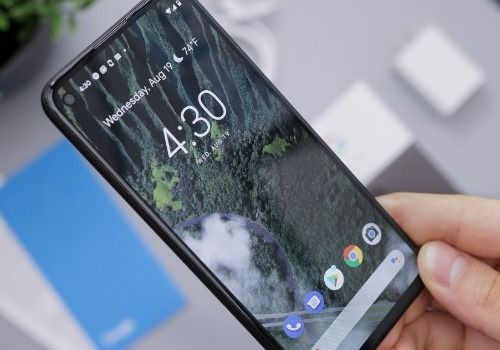
Setting Up a UK Mobile Phone Contract
Just arrived in the UK, how do I set up my mobile phone?
There are many things to consider when setting up your new life in the UK, one of which is how to get yourself a mobile phone contract. In this article we’ll help overseas doctors arrange a mobile phone contract by addressing the following questions:
Who are the main providers in the UK?
How can I check for the best coverage in my area?
What do I need to set up a contract?
Can I use my current handset?
What if I plan to be in the UK less than 12 months?
First, some general advice
At IMG Connect we strongly recommend doing some research by using several trusted market-comparison websites and looking at the reviews to help decide on your network provider.
The wrong contract might leave you stuck with a long contract, that proves to be unnecessarily expensive whilst offering poor signal in your area. If you rush this process and take out a contract that is not right, you will regret it. This comes from personal experience, so please do your homework!
Main Providers in the UK
The main providers are:
EE
02
Vodafone
Three Mobile
There are numerous other providers that ‘piggy-back’ off their service, but do not have their own network. The package you can get from a ‘piggy-back’ provider is potentially cheaper than the main provider who’s service they use – however the network quality will always be poorer than the main providers.
How can I check for the best coverage in my area?
Make sure to check the coverage and network availability in your area by using the Ofcom mobile and broadband checker.
Ofcom are the government approved authority for communications and tasked with ensuring people get the best service from their provider. You can raise any issues you have, free of charge, with Ofcom.
What do I need to set up a contract?
Once you’ve decided on your provider and package, most mobile phone companies will only require the following to open a contract:
Two proofs of address (utility bills, rental contracts etc.) which must show both your name and address.
Proof of Identification
Active bank account in order to set up a direct debit
Packages on offer:
There are two types of package you can consider; Contract or Pay-as-you-go
Contract:
Most providers offer a minimum contract of 12 months, SIM only. To get a handset included as part of your contract package typically you need a 24-month contract.
Pay-as-you-go:
Another option to consider is a pay-as-you-go sim card with no contract or handset. This will cost about £10 and can be up and running immediately.
Can I use my current mobile phone handset?
Yes, all sim-only packages will work with the device you already have.
What if I plan to be in the UK less than 12 months?
Whilst most IMGs prefer taking out a contract, if you do plan to be in the UK less than 12 months, a pay-as-you-go contract may be a better option.
In summary:
Only you will know what you are going to use your phone for, and which package will be right for you. If you are someone looking to call overseas regularly, think about WhatsApp calls, VOIP calling packages, face time etc.
With regard to phone contracts, just make sure to get a number of different quotes on similar packages and use these to try and get a bargain for yourself with one particular provider. All networks tend to be flexible at some point and the general rule is, if you don’t ask, you don’t get!
IMG Jobs
Search and find live NHS doctor jobs in the UK
IMG Resources
In our IMG Resources library you can read more useful articles on finding an NHS trust doctor job, pay scales & doctor’s salary in the UK, relocation and much more!
Get in Touch
Get in touch using the buttons above (and below) to discuss doctor job opportunities in the NHS, including discussions regarding a typical doctor salary in the UK and the most suitable hospital locations for you.